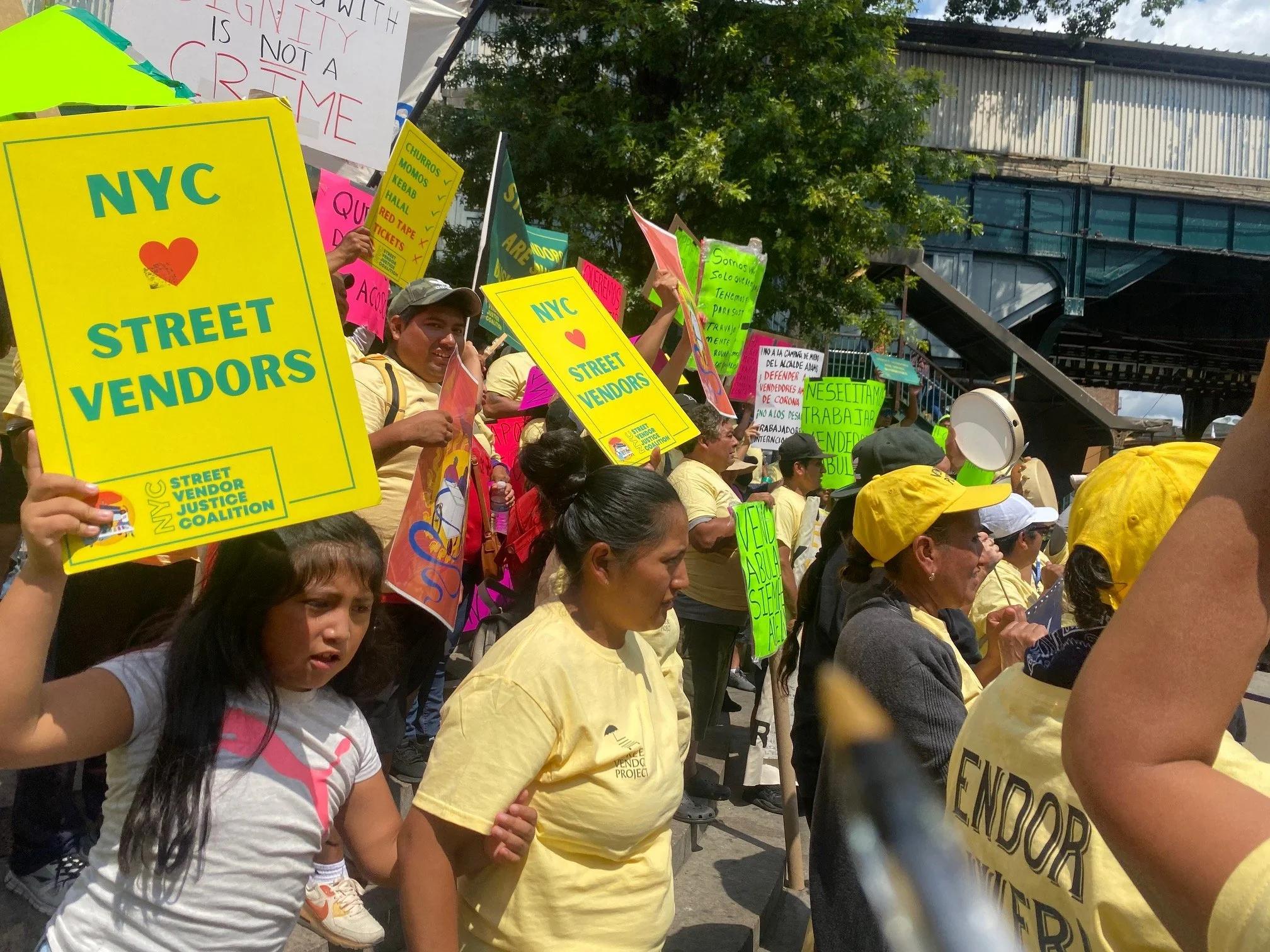Opinion: The false choice in Corona Plaza
/Vendors and their families rally in Corona Plaza. Eagle file photo by Ryan Schwach
By Jessica Ramos and Donovan Richards
The food available in this borough is something we, as Queens elected officials, are quick to boast about. Walking through the World’s Borough, you can taste authentic and affordable cuisine from every corner of the world. When the pandemic closed many beloved restaurants across the city, the staff at those restaurants brought their talents to their own neighborhoods as street vendors.
One such hub, Corona Plaza, has been recognized by the New York Times as one of the city’s top culinary destinations and has been the site of intense community engagement around a complex policy problem.
There is a false choice hanging over Corona Plaza. An escalating discourse around street vending has created the impression that we have to choose between the right people have to earn an honest living and the right to clean, safe public space. But both should – and can – be true.
As elected officials who have been leading the Corona Plaza Task Force and who represent the areas, we will be the first to say that there are problems in Corona Plaza. But we believe the solution to those problems requires the creation of structure and regulations, not punitive enforcement on its own.
It’s not the vendors’ fault that they have been ignored by the City for so long. Street vendors, elected officials and city agencies have been working together toward the sustainable development of Corona Plaza as a center for commerce and culture.
Together New York City’s Departments of Small Business Services, Sanitation and Transportation; local electeds; and the NYPD formed the Corona Plaza Task Force. Issues were identified and solutions were developed, including adding trash receptacles for vendor refuse, coordinating clean-ups and hosting community events that made the plaza a vibrant cultural hub. Yet progress was suddenly interrupted when on July 27th, vendors were swept by Sanitation Police and forced to stop working, putting nearly 100 families out of work and shocking many parties within the Corona Plaza Task Force who have been working collaboratively and productively on solutions.
We won’t begrudge anyone who uses their entrepreneurship and talents to earn an honest living. And we can all agree we need rules and regulations to govern our streets safely. This sentiment is shared by the Corona Plaza Vendors Association, who have formed a 501(c) nonprofit, filed with the city and state to pay proper taxes on their sales, received their mobile food vendor licenses and who have asked the Department of Sanitation for more enforcement on the vendors who are not following the rules.
We recommend that the Department of Transportation implement a concession agreement in Corona Plaza, creating a formal, regulated space with the proper sanitation and oversight. This crucial step will ensure the plaza's continued growth as a cultural hub while addressing logistical and administrative concerns. To support this vision, we are advocating for the immediate hiring of a dedicated Corona Plaza manager who will oversee coordination, community engagement, safety and cleanliness, all of which are vital to the plaza's continued success.
Vending is not going away. It’s a way for New Yorkers dealing with our broken immigration system to earn a living and often is much safer than the alternatives available. There is a striking parallel between the lack of immigration reform and the wait for work permits and the 10,000-name vendor permit license waitlist. Immigrant New Yorkers who have been trying to do the right thing have been waiting a long time for the system to recognize their humanity. Many of us who want clean streets are the children of immigrants who saw our own parents struggle, and we would do well to remember that.
Entrepreneurship should be supported and regulated, not eliminated.
According to a study by the Institute for Justice, street vendors generate annually an estimated $71.2 million in local, state and federal taxes, add $293 million to the city’s economy, contribute $192 million in wages, and create 17,960 jobs in New York City.
The vendors at Corona are primarily immigrant women, raising their families within walking distance of the plaza. They want fairness, cleanliness, and legal ways to earn a living in their neighborhood, just like anyone else. At a time when making ends meet is so difficult, we cannot afford to leave these families without an income. They want their compliance with City regulations to be recognized, and the creation of a system that allows the ecosystem of a community - neighbors, workers, small businesses, and vendors - safe enjoyment of our public space.
Through street vending, these families – our neighbors – are becoming self-sufficient. Taking this self-reliance away by only saying no is not something our shelter system can handle, and it will not make our neighborhood safer.
By creating an environment that supports economic development, we can shape Corona Plaza into a thriving and dynamic space that everyone in our community can be proud of.
Jessica Ramos is the state senator for Queens’ 13th Senate District. Donovan Richards is the Queens borough president.




